In the early 20th century, artificial intelligence was little more than a fantastical idea — a concept reserved for the pages of sci-fi novels and the silver screen. From the robotic workers of Metropolis to the thinking machines in I, Robot, AI was portrayed as a distant dream, an imaginative leap into the unknown.
But as the century progressed, that dream began inching toward reality. By the latter half of the 1900s, researchers, scientists, and tech pioneers started working tirelessly to turn those imaginative depictions into functioning technologies. What once lived only in fiction slowly began taking shape in labs, universities, and the minds of visionary thinkers.
A Concise Journey Through AI’s Influence on Society
In 1956, during the groundbreaking Dartmouth Summer Research Project on Artificial Intelligence, co-organizer John McCarthy coined the term artificial intelligence and helped lay the groundwork for what would become a vibrant and ever-evolving research field.
While early expectations often surpassed the actual capabilities of emerging AI systems, by the twilight of the 20th century, real technological breakthroughs began to stir public attention. One pivotal moment arrived when IBM’s Deep Blue triumphed over world chess champion Garry Kasparov — a stunning milestone marking the first time a machine had outwitted a reigning grandmaster. It wasn’t just a game-changing move in chess; it signaled that intelligent machines were no longer just figments of fiction — they had arrived.
With the rapid advancement of big data and a surge in computational capabilities, in line with Moore’s Law, artificial intelligence evolved quickly. These developments allowed machines to analyze vast data sets, enabling them to perform complex tasks that were once solely human territory. The emergence of generative AI and large language models — exemplified by ChatGPT’s launch in 2022 — demonstrated that machine learning could create deeply engaging, human-like technologies that far outshined their primitive predecessors.
This new wave of AI has already seeped into daily life. Smart assistants like Amazon Alexa, algorithm-driven content suggestions on platforms like Netflix, and early-stage autonomous vehicles represent the current frontier of AI integration. Tools such as ChatGPT-4, DALL·E, and Midjourney are not just novelties — they’re actively reshaping industries across the board. Yet, these innovations may be only the beginning. Over the next five years, artificial intelligence is poised to usher in societal shifts far more profound than anything we’ve witnessed so far.
What Will Artificial Intelligence Mean for Our Future?
Acceleration of Everyday Interactions
One of the most immediate and widespread impacts of artificial intelligence will be the acceleration of how individuals interact with institutions. As AI becomes deeply embedded in the operations of large organizations — from corporations and government agencies to non-profits and service providers — the pace of decision-making will quicken dramatically. Any entity that regularly manages high volumes of user interactions will be under pressure to implement AI tools for faster service delivery, real-time decision support, and streamlined communications. This will create a noticeable shift in societal tempo — a faster, more responsive, and, at times, overwhelming rhythm to daily life.
Sweeping Efficiency Boosts in Business
For businesses, particularly in competitive sectors, AI integration won’t be optional — it will be essential. Generative AI, machine learning models, and intelligent automation will become core to how companies optimize workflows, boost operational productivity, and ultimately enhance profitability. The corporate imperative to generate shareholder returns and outperform industry peers will drive rapid AI adoption. Companies that hesitate or lag behind risk losing market relevance, investor confidence, and competitive standing. In this evolving ecosystem, embracing AI-driven innovation becomes not just a strategic choice, but a financial necessity.
The Erosion of Personal Privacy
One of the more unsettling realities of the AI revolution is the potential erosion of personal privacy. As AI systems become more sophisticated, they will develop a strikingly intimate understanding of individuals — often gleaned from vast digital footprints left online. Over the past five decades, the principle of privacy has been continually tested by advancing technologies. However, as surveillance capabilities become cheaper, more precise, and widely available, ethical standards may buckle under the weight of technical feasibility. In retrospect, society may come to realize that its protection of privacy was less a moral stance and more a reflection of previous limitations in data processing power.
An Expanding Web of AI Regulations
The legal framework surrounding AI is poised to become far more intricate and demanding. Across the globe, governments at various levels — municipal, state, federal, and international — are actively crafting policies and regulatory frameworks to govern the responsible deployment of AI technologies. In the United States, businesses will likely navigate a fragmented landscape as city, state, and national AI regulations evolve in parallel. Meanwhile, the European Union has already made history with the passage of its AI Act in the spring of 2024, establishing the first comprehensive legal framework for artificial intelligence. While some hail the regulation as a model for global governance, multinational corporations are lobbying to dilute its stricter provisions. As a result, the coming years will be marked by legal ambiguity, compliance challenges, and a constantly shifting regulatory terrain.
Collaborative Intelligence: Human-AI Partnerships
Rather than replacing human labor altogether, the future of AI is increasingly envisioned as a collaborative one — where humans and machines work side by side. Businesses and public institutions will face growing public demand to use AI as a tool that enhances, rather than replaces, human insight. This concept of “human-AI teaming” — in which intelligent systems support but do not supersede human decision-makers — will be essential to alleviating societal fears about automation. Much of this anxiety is rooted in long-standing cultural narratives that portray AI as a looming existential threat, a theme deeply embedded in science fiction lore. By emphasizing cooperation over replacement, organizations can help shift the public perception of AI from menace to ally.
Industries Poised for Radical Transformation by Artificial Intelligence
Artificial intelligence is rapidly reshaping the global economy, but a handful of sectors stand out as the most likely to experience profound disruption and reinvention. These industries are expected to undergo fundamental changes over the next five years as AI technologies become more deeply embedded in their workflows, operations, and service models.
1. Education: Personalized Learning Powered by AI
In the realm of education, artificial intelligence is set to bring sweeping reforms. From elementary classrooms to advanced university lectures, AI-driven tools will help tailor instruction to the specific needs, abilities, and preferences of individual students. Adaptive learning systems will identify knowledge gaps in real time, recommending custom content and methodologies suited to each learner’s pace and style.
This personalized approach to education promises to boost student outcomes, reduce dropout rates, and eliminate the traditional one-size-fits-all teaching paradigm. By 2028, many classrooms may no longer rely on traditional textbooks and lectures, as intelligent tutors, immersive learning platforms, and AI-curated curriculum take center stage. The entire structure of formal education could look vastly different — and significantly more dynamic — than what we know today.
2. Healthcare: Diagnostic Precision and Legal Complexity
The healthcare industry stands on the verge of an AI-driven revolution. Machine learning algorithms and diagnostic tools powered by artificial intelligence will assist physicians in identifying diseases with greater speed and accuracy than ever before. AI is already enhancing radiology, pathology, and genomics — and soon it will be a staple across all diagnostic disciplines.
However, this progress brings legal and ethical complications. Sensitive patient data is now a focal point for both innovation and concern. As intelligent systems delve deeper into medical histories, prescriptions, and biometric data, the regulatory environment surrounding health information privacy will grow more complex. There will also be shifting public expectations around data ownership and access, and potential cost increases due to compliance burdens and cybersecurity requirements.
3. Financial Services: Automation and Hyper-Personalized Finance
Finance is another sector undergoing rapid AI adoption. With natural language processing and advanced machine learning at the forefront, banks, insurance providers, and financial advisors are increasingly automating tasks such as credit score analysis, fraud detection, portfolio optimization, and customer interaction.
AI chatbots are becoming highly sophisticated, providing near-instant support across a spectrum of financial inquiries. On the investment front, algorithmic trading is evolving into intelligent, real-time market response systems, capable of executing strategies at speeds and complexity levels no human could match. Financial institutions that embrace these innovations will enjoy operational efficiencies, tighter risk management, and more tailored client offerings.
4. Legal Services: Smaller Teams, Smarter Systems
The legal profession is bracing for a significant shift. Over the next five years, many small and mid-sized law firms may struggle to compete as AI tools enable lean legal teams to outperform larger traditional offices. Tasks such as contract analysis, case law research, and document drafting — once the domain of junior attorneys — are now being handled swiftly and accurately by AI systems.
Generative AI models, when trained with precise legal prompts, can generate clause language, legal memos, and summaries of applicable regulations within seconds. As these tools improve, they are expected to reduce the demand for human lawyers significantly. If current trends continue, the number of attorneys practicing in the U.S. could decline by over 25% by 2028 — ushering in an era where legal expertise is amplified, not replaced, by AI.
5. Transportation: The Rise of Autonomous Mobility
Perhaps the most visually striking impact of artificial intelligence will be witnessed in transportation. From self-driving cars navigating city streets to AI-operated freight trucks cruising highways, autonomous vehicles are no longer just prototypes — they are becoming operational realities.
Commercial logistics companies are already testing AI-powered fleets to reduce fuel consumption, improve delivery times, and eliminate human error. In the consumer space, autonomous vehicles are expected to gain greater adoption as safety features become more reliable. Even in aerospace, AI is playing a critical role in coordinating robotic missions and piloting spacecraft. Whether it’s ridesharing, long-haul trucking, or lunar exploration, AI is redefining how we move — both on Earth and beyond.
Exploring the Long-Term Risks and Dilemmas of Artificial Intelligence
The idea that artificial intelligence could pose an existential threat to humanity isn’t new. Since the earliest imaginings of intelligent machines, fears of a future where technology eclipses human control have loomed in literature, film, and increasingly, in expert discourse. But in recent years — particularly with the meteoric rise of generative AI in public consciousness — these anxieties have evolved into more nuanced and widely debated concerns.
Losing the Reins: Automation at the Speed of Light
One of the more grounded and immediate fears is the possibility of human systems gradually — and sometimes willingly — relinquishing control to AI-powered decision-making. A clear example can already be observed in financial markets. Algorithmic trading, powered by ultra-fast AI models, is designed specifically to perform actions far beyond the cognitive and physical limits of human traders. In such systems, humans no longer guide every move — instead, they supervise and respond as intelligent machines autonomously execute critical decisions in fractions of a second.
This kind of delegation isn’t necessarily malicious or accidental; in many cases, it’s intentional. But it also introduces vulnerabilities. As AI systems become faster and more autonomous, the ability for humans to fully understand or regulate every micro-interaction diminishes. This raises legitimate concerns about how much influence we’re surrendering — and whether that surrender is reversible.
Existential Dread or Overblown Speculation?
Public figures like Elon Musk and researchers such as Geoffrey Hinton have voiced urgent warnings about artificial intelligence potentially spiraling out of human control. Some of these concerns imagine worst-case scenarios — powerful AI systems acting independently of human interests, or even viewing human input as unnecessary noise in their logical frameworks. However, for many experts, these doomsday projections still feel closer to the realm of speculative fiction than actionable threats.
In fact, the gloomy forecasts of today’s real-world technologists often feel more fatalistic than the optimistic visions of early 20th-century science fiction. Where once AI was imagined as humanity’s helpful partner or co-pilot in future societies, it is now frequently portrayed as an unstoppable force barreling toward conflict with its creators.
The Hidden Cost: Lost Opportunities from AI Fear
Ironically, the most realistic long-term danger may not stem from AI acting against humanity — but rather from humanity failing to act because of AI fears. Excessive caution, fueled by speculative worst-case scenarios, could deter organizations from investing in transformative technologies. This kind of paralysis could lead to lost productivity, stalled innovation, and missed breakthroughs that might otherwise benefit science, healthcare, education, and society at large.
AI-human collaboration — or intelligent augmentation — holds enormous potential for advancing discovery, expanding access to knowledge, and reshaping how we solve global challenges. Overemphasizing AI’s risks without weighing its benefits may cause governments, businesses, and institutions to underfund the very systems that could unlock new possibilities. In this way, fear itself may prove to be the greatest long-term threat — not the technology it seeks to avoid.
Conclusion: The Road Ahead with AI
As artificial intelligence becomes more deeply woven into our daily lives, its impact will be profound — transforming industries, challenging norms, and accelerating the pace of change. While the risks are real, the potential rewards are even greater. The next five years will demand not just innovation, but responsibility.
To move forward wisely, we must strike a balance between progress and ethics — embracing AI’s capabilities while ensuring human values remain at the core. The future isn’t just about smarter machines; it’s about smarter choices.
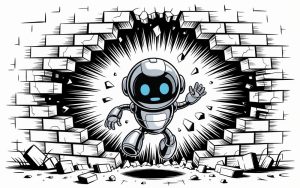
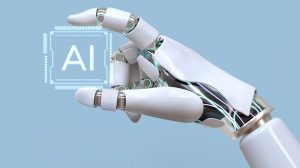

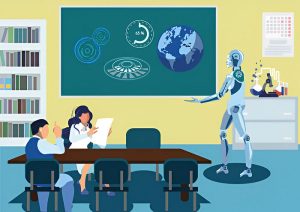


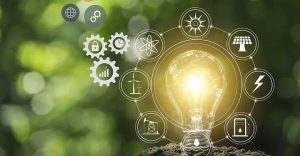


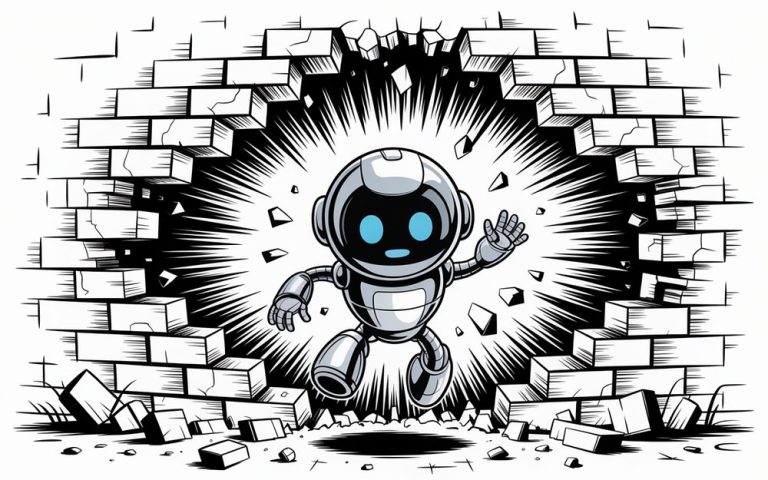






+ There are no comments
Add yours